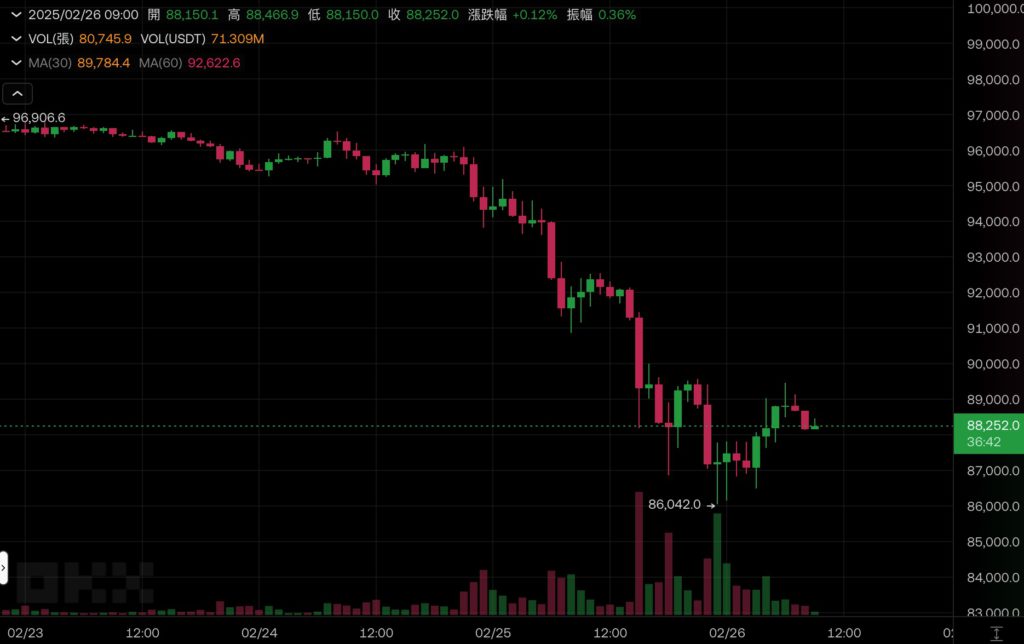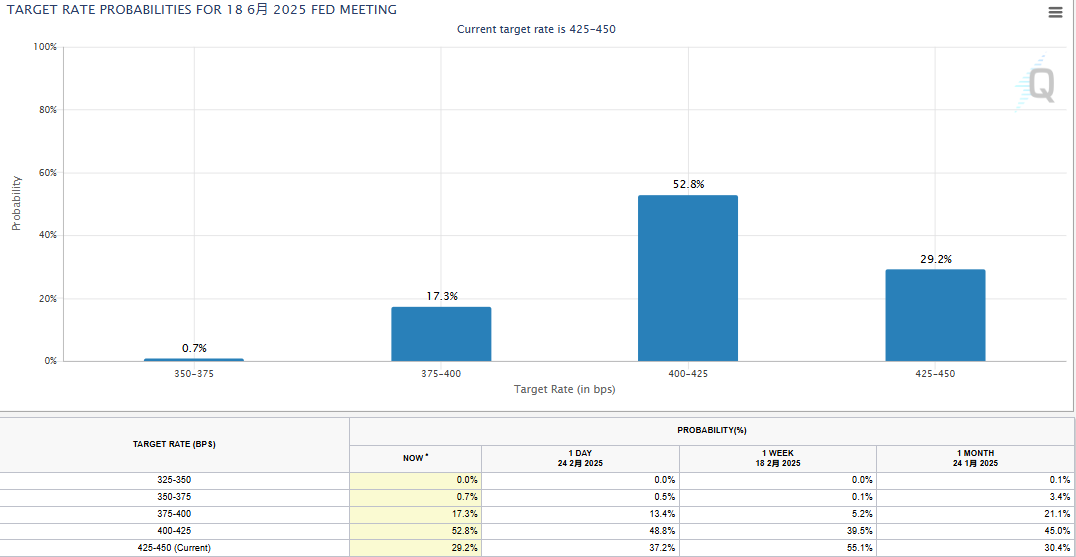According to data from The Conference Board released last (25th) night, the US consumer confidence index fell 7 points to 98.3 in February, far lower than the market's previous expectation of 102, marking the largest monthly decline since August 2021.
The expectations index fell even more, dropping 9.3 points to 72.9, the first time it has fallen below the critical threshold of 80, which usually signals an impending economic recession, since June 2024.
Analyst: Inflation Expectations Soar
The latest consumer confidence index data shows that consumers are expressing concerns about the economic situation in the US, future employment and income, as well as inflation prospects. Regarding this, Stephanie Guichard, Senior Economist at The Conference Board, commented:
The consumer confidence index in February recorded the largest single-month decline since August 2021, marking the third consecutive month-on-month decline, pushing the index to a new low since 2022.
Among the five components, only the assessment of current business conditions has improved slightly, while consumers have become more pessimistic about the future business environment, and their optimism about future income has also declined. Pessimism about future employment prospects has risen to a 10-month high.
Furthermore, regarding the resulting inflation issue, Stephanie Guichard added:
The 12-month average inflation expectation has soared from 5.2% to 6% in February, and the mention rate of inflation and general prices in survey responses remains high, but the focus has shifted to other topics, with the mention rate of trade and tariffs rapidly rising back to 2019 levels.
Four Major US Stock Indices Decline
US tech stocks performed weakly on the 25th, with NVIDIA, which will report earnings after the market close on the 26th, falling 2.8%, underperforming the broader market. Tesla, the electric vehicle giant, even plummeted 8.39%, with its market capitalization falling below $1 trillion, mainly due to a decline in European sales.
On the 25th, the Dow Jones Industrial Average closed up 159.95 points or 0.37% at 43,621.16 points.
After the release of the consumer confidence data, the four major US stock indices all declined, with the Dow being the only one to close slightly higher, while the other three major indices fell:
- The S&P 500 index fell slightly by 28 points or 0.47%, closing at 5,955.25 points
- The Dow Jones Industrial Average rose 159.95 points or 0.37%, closing at 43,621.16 points
- The Nasdaq index plummeted 260.5 points or 1.35%, closing at 19,026.39 points
- The Philadelphia Semiconductor Index fell 114.66 points or 2.29%, closing at 4,888.88 points
Bitcoin Plunges to 86,000 USD
Under the concern of the Trump tariff war, Bitcoin fell below $87,000 on the evening of the 25th, but briefly rose above $89,000. However, after the release of the US consumer confidence index, Bitcoin was hit again, plunging to a low of $86,042 around 11:30 pm. Fortunately, the decline did not continue to expand, and as of the time of writing, it is reported at $88,252, but there is currently no obvious buying momentum, and the future trend remains to be observed.

Fed Likelihood of Rate Cut in June Rises
However, it is worth noting that when consumer confidence is pessimistic and there is excessive concern about the future economic outlook, the expectation that the US Federal Reserve (Fed) may take certain measures to stimulate the economy has also increased.
According to the current data from the FedWatch tool of the Chicago Mercantile Exchange, the market still expects a high probability that the Fed will keep interest rates unchanged in March and May, at 95.5% and 70% respectively. However, for the interest rate decision in June, the market expects the probability of the Fed cutting rates by one notch has risen from 39.5% a week ago to 52.5%, while the probability of the Fed keeping rates unchanged in June has fallen to 28.4%.









